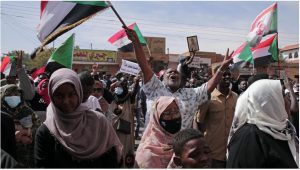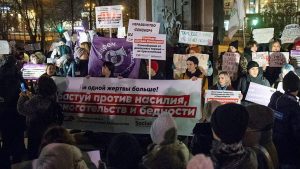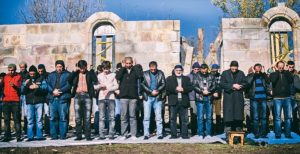By: Amanda Drantch
Journal of Global Rights and Organizations, Associate Articles Editor
KHARTOUM, Sudan — In 2019 Sudan’s longtime dictator, Omar Hassan al-Bashir, was ousted in hopes of establishing a democratic government. During his forceful control over Sudan, the International Criminal Court issued an arrest warrant accusing al-Bashir of crimes against humanity, war crimes, and genocide that he and other officials committed against those living in the Darfur region. Currently, al-Bashir is still at large and has yet to be properly prosecuted for his atrocities against the Sudanese.

Following the overthrow of al-Bashir, then Prime Minister Abdalla Hamdok, took control over the transitional democratic government. However, in October of 2021, the Sudanese military forcibly seized control over Sudan, and dissolved the democratic transitional government within hours. Shortly after seizing control, the military ousted and arrested Prime Minister Hamdok. However, after a contentious deal with the military, Prime Minister Hamdok was then reinstated about a month later.
Civilians quickly took to the streets and protested not only the coup that originally overthrew Hamdok, but also the contentious deal with the military that culminated in his return to power. Oppositional political groups and civilians violently rejected Hamdok’s agreement with the military for his reinstatement.
On January 2, 2022 Prime Minister Hamdok gave a televised speech announcing his resignation, and cited his failed mediation attempts between the military and the pro-democracy movement in Sudan. Even prior to his resignation violent clashes between civilians, and the Sudanese security forces left more than sixty dead.
The civilian led protests only increased after Hamdok’s resignation, with thousands protesting daily against the possibility of another autocratic government. On Janurary 17, 2022 demonstrators and anti-coup protestors marched in Khartoum shouting slogans like “No, no to military rule”. Sudanese security forces fired tear gas and opened fire on the protestors, leaving three dead. This increased the death toll to sixty-seven since the demonstrations began.
Many of the pro-democracy protestors are young people who are engaging in these daily demonstrations and demanding that the military hand over their power to the civilians to lead the country to democracy. Military leaders consistently reject the protestor’s demands and insist that power will be handed over only to an elected government.
For now, elections are scheduled to take place in July 2023, but uncertainty and violence still remains in Sudan.
For further information please see:
Al-Jazeera – Tear Gas Fired at Sudan Protests as Thousands Rally Against Army – 04 Jan. 2022
New York Times – Sudan’s Prime Minister, Abdalla Hamdok, Resigns – 02 Jan. 2022



